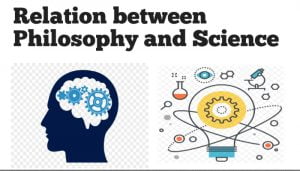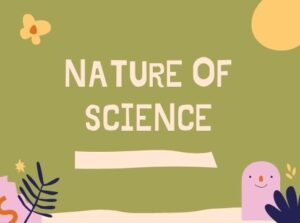Objectives of Teaching Life Science in Secondary School: The students of this stage of education are more developed than the students of the Junior High School classes. They have certain interests are aptitudes developed in them. These students have to be prepared for future life as well as higher Higher education. The students of this stage of education should be taught science with the view to achieving the following three things-
- Development of psychological aptitude and interests.
- To prepare and equip for higher education
- Economic efficiency and capacity to earn a livelihood
Objectives of Teaching Life Science in Secondary School
In order to achieve the mentioned things, certain objectives must be kept in view. It is these objectives that have to govern the teaching of science in the secondary stage of education. The following are the objectives-
- Knowledge: This perhaps is the major aim of teaching science. The pupils studying science should acquire knowledge of
- Scientific Terminology
- Scientific facts to understand scientific literature
- Ways and means of dealing with specifications.
- Conventions
- Trends and Sequence
- Natural phenomenon
- Correlation and interdependence of different branches of science
- Methodology
- Theories and structure
- General rules of health and human-machine.
The Students should be able to apply this knowledge in their daily life
2. Understanding: This is the second objective in the cognitive domain and includes translation from one form to another and interpretation. It has been found that up to 70% to 80% of the scientific facts learned in science courses are forgotten within one year after the completion of the course.
For understanding the students must be trained to generalize the facts and events which have common characteristics, constantly seeking generalization that makes things more understandable. These generalizations are frequently referred to as concepts, principles, and laws which are very essential to understand science in everyday life and form a strong base for higher education.
3. Application: The third aim and objective of teaching science are to make the students more alert citizens and better equipped to improve community life. In order to achieve this, students should be able to apply the generalizations to their daily life. This will serve as a bridge to fill the gap between classroom work and real-life activities. Moreover, the application of principle will help in verifying the principle itself
4. Skills: Knowledge of content alone is not enough for enriching a student. Therefore, stress is not on the memory of the contents but on the development, improvement, and refinement of tools with the passage of time.
The various skills that can be developed through science teaching are observational skills, experimental skills, constructional skills, problem-solving skills, and drawing skills. Possession of these skills is essential in solving practical problems.
5. Attitude: By definition “ Attitude is a condition of readiness for a certain type of activity” Finding answers to problems through direct observational, experimentation, verification, and testing of knowledge are some of the initial manifestations of scientific attitude. Science teachers, on the other hand, should make special efforts to develop them by employing democratic procedures in classroom activities.
6. Interest: Teaching science should also aim at developing some interest in reading scientific literature, in scientific hobbies in activities of the science club, and so on. Interest should not be superimposed on the other hand, everybody should be free to select the activity according to one’s own inner appeal
7. Appreciation: The students of science should be able to appreciate the contribution of science to the progress of civilization. The basic idea of this aim is to develop a real feeling of science. An application cannot be taught as such. It develops from understanding and attitudes
8. Personality Traits: The teaching of science aims to develop personality traits also. The pupil should report his results and observation faithfully. Science teaching should provide suitable opportunities for every individual to unfold environment, and must be provided to draw at the best in a child’s body, mind, and soul
Conclusion: Science has acquired new meaning and scope in recent years. The reason for introducing science as a compulsory subject in the school curriculum.
The need to formulate objectives of science teaching has been emphasized in Bloom’s taxonomy of educational objectives under the domain of cognitive, affective, and psychomotor



